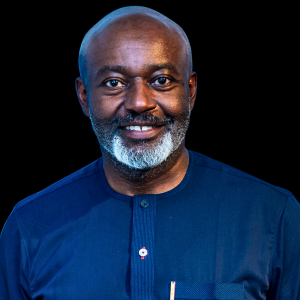The Resident Coordinator Office
The Secretary-General’s reform process initiated in 1997 stressed the need to achieve a greater unity of purpose and coherence in country-level operations of the UN system, highlighting the need to strengthen the Resident Coordinator System and promoting a more united UN presence at the country level.
The Resident Coordinator system (RC system) encompasses all organizations of the United Nations system dealing with operational activities for development, regardless of their formal presence in the country. The RC system aims to bring together the different UN agencies to improve the efficiency and effectiveness of operational activities at the country level. Resident Coordinators lead UN country teams in more than 130 countries and are the designated representatives of the Secretary-General for development operations. Working closely with national governments, Resident Coordinators and country teams advocate the interests and mandates of the UN drawing on the support and guidance of the entire UN family.
There are 17 UN agencies and programmes represented in South Africa with offices in Pretoria. The Bretton Woods Institutions, the World Bank, the International Monetary Fund and the International Finance Corporation, also have offices in Gauteng. Most of the UN agencies are housed in the UN House located in Pretoria. Substantially, three Thematic Interagency groups (HIV/AIDS, Integrated Sustainable Rural Development and Regional Integration) ensure coordination.
In South Africa, the Resident Coordinator is the head of the United Nations and representative of the UN Secretary-General. She facilitates and coordinates the United Nations operational activities in South Africa.
Specific Duties and Responsibilities of the Resident Coordinator
1) Advocacy for the United Nations System:
- Speak to and support the advancement of United Nations system objectives and mandates
- Follow-up to United Nations global conferences
- Information activities
2) Operational Coordination:
- Support to national coordination, including the country strategy note
- United Nations Development Assistance Framework (including the common country assessment and the common database)
- Establish Field-level committee
- Foster the Establishment of Inter-agency thematic groups
3) Management Coordination:
- United Nations House and common services
- Team-Building and Inter-Agency Training
- Representation of Organizations of the UN system without field representation
- Security
4) Humanitarian and Emergency Assistance
5) Annual Reporting, Appraisal and Hiatus Arrangements:
- Annual Reporting, including the annual work plan
- Resident Coordinator and country team performance appraisal
- Hiatus Arrangements
The Resident Coordinator in South Africa
Mr. Nelson Muffuh is the UN Resident Coordinator in South Africa with more than 20 years of experience in international relations and negotiations, political and development issues at the United Nations (UN) Headquarters, regional and country levels.
Prior to his appointment as United Nations Resident Coordinator, Nelson Muffuh served as Chief of Staff and Principal Strategic Adviser to the UN Deputy Secretary-General since 2017. He led the overall management and guidance of staff, focusing on the acceleration of systemwide and whole-of-society efforts on the Sustainable Development Goals (SDGs) and on the repositioning the UN development system and strengthening the Resident Coordinators system.
As lead strategic adviser and policy coordinator on sustainable development political and partnerships interventions, Mr. Muffuh helped shape and advance the UN’s comprehensive response to the COVID-19 pandemic, advocate and organize summits on the SDGs, Financing for Development, and Climate Action. He was instrumental in convening and coordinating the efforts of launching the Spotlight Initiative on violence against women and girls, the Decade of Action for the delivery of the Sustainable Development Goals by 2030, and the Global Crisis Response Group to address the impacts on food, energy, and finance due to the war in Ukraine.
Prior to this, Mr. Muffuh led and coordinated stakeholder engagement, outreach, and global strategic partnerships efforts to inform the post-2015 development policy process, whose outcome was the 2030 Agenda for Sustainable Development and its accompanying SDGs to succeed the Millennium Development Goals.
Nelson Muffuh started his UN career with the UN Development Programme-UN Millennium Campaign, then UN Population Fund in Africa, where he acquired extensive experience in programme management, multistakeholder collaborative interventions, partnerships and communications, as well as advocacy and mobilization. Before that, he served as a Senior Programme and Advocacy Advisor for Christian Aid, and Programme Coordinator for the African Liberal Network-Westminster Foundation for Democracy and Transparency International Secretariat.
Mr. Muffuh studied political science and international relations at Freie Universität Berlin, Germany, and development cooperation at Sussex University, United Kingdom.
He is married and has two children.


